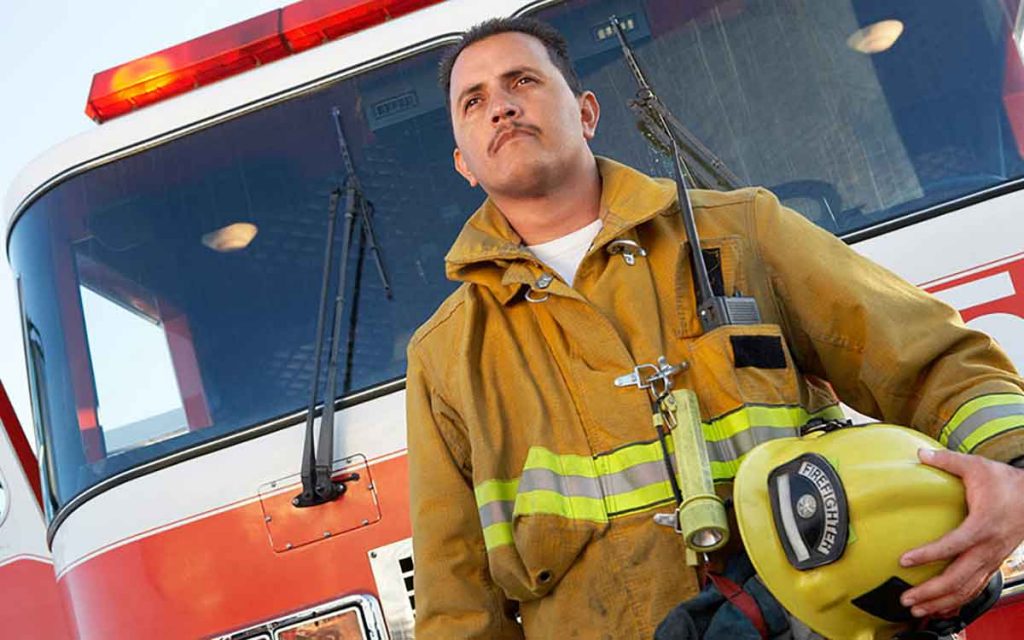No one ever tried to say it’s not a tough job. But firefighters must face more than just blazes and collapsing buildings as they work every day to save lives.
As they reach retirement from their selfless service, many firefighters are faced with the new challenge of hearing loss.
Occupational Hearing Loss
Occupational hearing loss is hearing loss that can be linked directly to your profession. Government agencies put rules in place for employers that limit an employee’s exposure to damaging sounds, among other safety hazards. Unfortunately, these precautions aren’t always enough.
Hearing loss is a complex safety concern for firefighters. As these men and women face a greater risk of life-threatening injury or even death, it’s easy to forget about hearing loss. It also tends to happen slowly over many years. By the time a person realizes that it’s severe, it’s already too late.
Why It Takes So Long to Recognize Damage
While most of the human body is very resilient, your ears can be easily damaged from prolonged or very loud noises.
You have tiny hair-like nerve cells in your inner ear that pick up different frequencies of sound. They vibrate with those sounds and communicate with the brain regarding what you’re hearing.
When exposed to very loud sounds, these nerves vibrate very quickly, which can cause injury. Your body does not have a way to repair or regrow these cells. The more cells you damage, the harder it becomes to hear.
How Fire Fighting Can Lead to Hearing Loss
Sirens, like on firetrucks, have been shown to cause hearing loss.
Add to this the noise of air horns and loud engines, and you have a boisterous work environment.
Even though the noise is intermittent, the volume can exceed 120 decibels. This volume can cause damage instantly, although you may not detect it until later.
That’s not to mention spending 15 minutes or more in the station or on the truck with sirens blaring.
A staggering 40% of career firefighters have some hearing loss. By the time they reach retirement, for many, the damage is severe.
Protecting Hearing as a Firefighter
Government agencies have created specific guidelines to try to curb hearing loss among these brave men and women. Unfortunately, studies have shown that only around 34% of firefighters are following these or other hearing protection precautions.
But hearing loss can be prevented when care is taken to protect the hearing.
Experts recommend no more than 8 hours of exposure to 85 decibels or louder. That’s approximately the volume of a lawnmower or motorcycle. At this level, some damage is still occurring. But it’s considered to be within tolerable levels.
Firefighters should also be educated about job risks to their hearing as well as what they can do to protect their hearing. When it would not hinder job performance, properly wearing earplugs and earmuffs can reduce the damage.
Do You Have Occupational Hearing Loss?
If you’re a firefighter or work in another noisy occupation, don’t you want to know if you can do more to protect your hearing? Speak to a hearing specialist to get your hearing tested. Find out where you stand and what you can do to slow the progression.
If you already have severe hearing loss, you still have options. Hearing aids today are more technologically advanced, so you get the best hearing experience. A hearing specialist will help you explore ways to improve your hearing.



